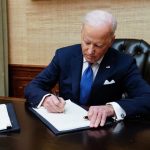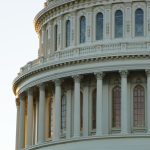Vice President JD Vance recently shed light on President Donald Trump’s groundbreaking approach to international trade, marking a stark departure from the national policy that has turned the United States into a decades-long piggy bank for the rest of the globe. He asserted that for the first time in nearly 40 years, the U.S. is finally putting its citizens first instead of funding the fanciful dreams of foreign nations. This came to the fore during an exclusive interview with Breitbart News as Trump unveiled significant new tariffs at a White House press event.
Vance emphasized that America has long been at the mercy of foreign trading practices, suffering from outrageous tariffs while our own markets remained open. He highlighted that under Trump, the U.S. is finally saying enough is enough to unfair trade practices. With these new tariffs, manufacturers are flocking back to American soil, leading to more jobs and a stronger middle class. This isn’t just about protecting the economy; it’s about securing a future where American workers are prioritized over foreign interests. Thus, the irony is rich considering that former Vice President Mike Pence, now a vocal critic of these trade policies, appears disconcertingly out of touch with the current economic reality.
Exclusive — JD Vance on ‘Liberation Day’ Tariffs: ‘First Time’ in Decades ‘We Have an American President Saying No More’ to U.S. Being World’s ‘Piggy Bank’https://t.co/rGgmdoi9LE
— Heidi (@HeidiL_RN) April 3, 2025
As expected, the chorus of anti-Trump voices has begun to sound. Critics of the new tariffs, many of whom championed the myth of “free trade,” are now left scrambling for justification. They harangue against any protective measures while conveniently ignoring the fact that other nations have been profiting off the United States for years, ladening our exports with high tariffs and barriers. Vance’s remarks cut through this hypocrisy like a knife, calling out the absurdity of attacking tariffs from countries that engage in aggressive economic warfare against American products.
Additionally, Trump’s initiatives reflect a broader strategy to marry trade policy with national security interests—a two-for-one deal of sorts. Vance pointed out that true nationalism is about ensuring that America retains control over its resources and manufacturing capabilities, especially in times of crisis. The ongoing geopolitical tug-of-war necessitates that the U.S. not only stands strong economically but also prepares for potential conflicts by ensuring that vital supplies, including pharmaceuticals, are generated domestically. This sensible approach would place the well-being of American citizens front and center rather than outsourcing critical needs to countries that may not always have our best interests at heart.
In a world rife with uncertainty and foreign manipulation, the clarity of purpose in Trump’s trade policy stands in stark contrast to the complacent attitudes of previous administrations. It raises the stakes for those committed to America’s economic freedom and national sovereignty. The era where foreign entities are free to plunder American resources without consequence is over, and Vance has made it clear that under Trump’s leadership, it’s time to dismantle the established protocols of exploitation.




